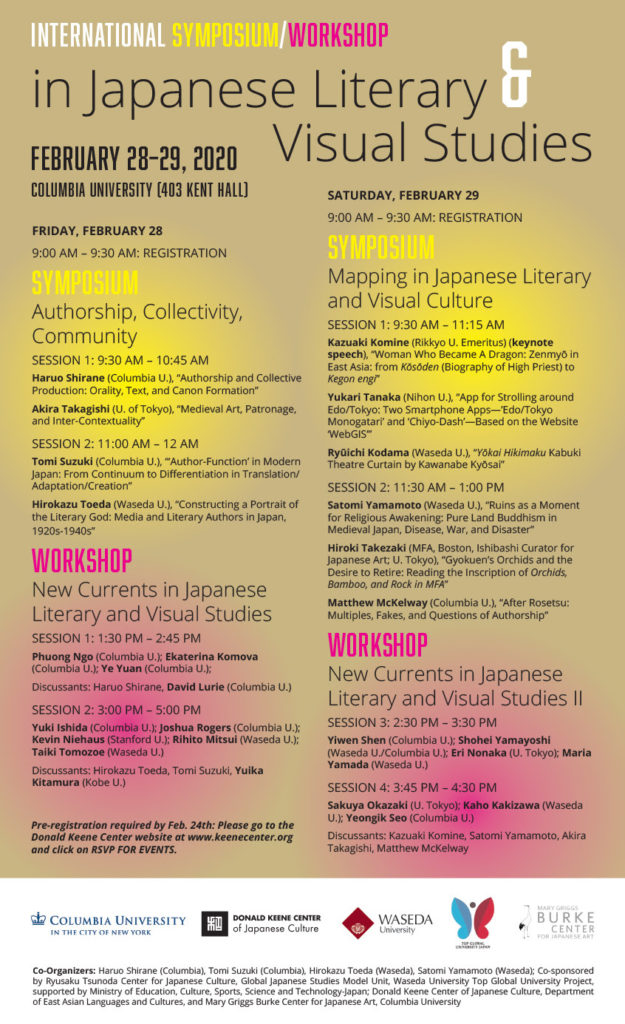The Department of East Asian Languages and Cultures fully endorses the Statement of Principles for Teaching in the Time of a Pandemic, which was originally published by the Department of English and Comparative Literature.
As the University’s response to the COVID-19 public health emergency evolves, all of us look
forward to returning to the in-person teaching that forms the foundation of our shared intellectual
life, when it is safe to do so. During this extraordinary time of crisis, we come together as a
community—of scholars, teachers, archivists, students, and administrators—to affirm the
following principles, which shall guide our response and our actions going forward:
Health
First and foremost, we commit to preserving the health, safety, and well-being of all members of
our community.
Equity
We recognize especially the challenges faced by our students, particularly those already in
difficult circumstances shaped by the inequities of wealth, race, ability, accessibility,
environment, citizenship, or residency status.
Teaching Flexibility
Therefore, we are committed to adapting our teaching approaches flexibly in response to the
varied circumstances and the needs of our students, as well as the ongoing developments in
public health, using every tool at our disposal.
Technology
While technological innovation in the classroom is important, we are reluctant to burden our
instructors and students with new, cumbersome, and costly tools. Instead, we propose to innovate
the methods that are the core of the humanities classroom – careful reading, analysis, original
thought, and student engagement — being guided by best practices and by technology already in
use widely among instructors and students. In doing so, we draw upon the rich resources and
research in digital humanities pedagogy.
Individual Choice
We trust in the wisdom of instructors to tailor their instruction individually and to make personal
choices about how best to preserve the safety of their classes while maintaining teaching
excellence.
Self-governance
In making decisions we rely also on the long-standing traditions and established mechanisms of
faculty self-governance at Columbia, within the Department and across the Arts and Sciences.
Our decisions as a University grow stronger when we respond, with many diverse voices, after
careful consideration and discussion, and with respect to the existing advisory structures.
Vulnerability
Finally, we affirm the need to protect our more vulnerable colleagues from undue pressure
contrary to the above principles: lecturers, staff, untenured faculty, graduate students, and
adjunct faculty. We stand with them in support and with all others struggling to cope with this
crisis.
Today, more than ever, our (real and virtual) doors are open for your questions, concerns, and
comments. Please do not hesitate to get in touch.


